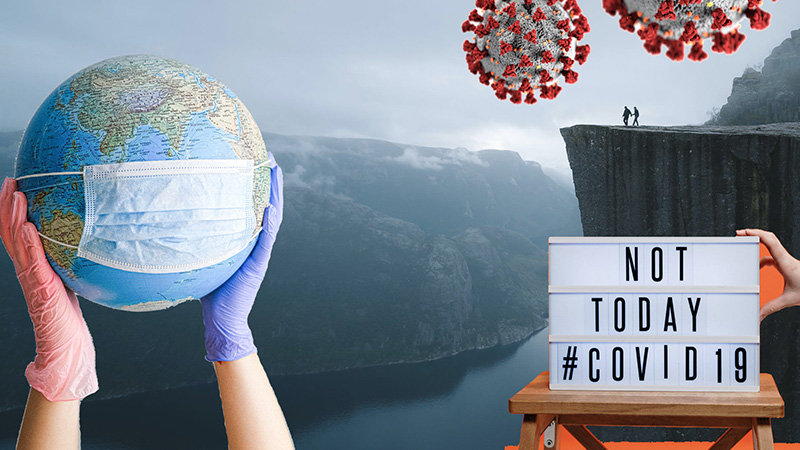Thailand is used to being a ma mued, or dark horse – an underdog.
When the coronavirus crisis began, no one expected us to come out “on top,” with our success heralded in the New York Times and National Geographic, let alone featured alongside New Zealand in a WHO-funded documentary.
As the first country outside China to report a COVID-19 case, we quickly (if momentarily) became pariahs in the global community.
Case in point, I was to attend a family wedding in a small city in the American Midwest. In March, as the spouses-to-be debated whether to go ahead, one complicating factor were the whispered worries about coming into contact with “people from Thailand.”
How that script’s been flipped. But before gloating, we should keep in mind the ending’s yet to be written and realize we could still crater what’s left of our economy through unwarranted fear, greed and unrealistic expectations.
Just last month, news of a COVID-positive Egyptian delegate out for a shop-about in coastal Rayong cost the tourist magnet a devastating 90% to 100% of its hotel bookings. When the shadow of a COVID comeback spread from a Sukhumvit-dwelling attache’s residence, it was Groundhog Day for the surrounding hotels and beauty clinics.
Retreating from the slightest shadow, much like that famed marmot, has become policy. Thailand has declared that visitors from other countries won’t be let in until those nations have gone 60 days without new cases.
It’s unclear where that magic number came from, but it echoes other, more foreboding figures: 60% of Thai hospitality businesses will fail, the tourism ministry forecasts, and 60% of staff at some travel and tour firms will lose their jobs or have their pay cut should inbound travel not resume by year’s end.
When did the goal transition from “flattening the curve” to zeroing it? And where does the economy factor into that picture? We have far fewer COVID cases than other countries, yet our economic casualties are mounting. Are we losing sight of the bigger picture all together?
The Kreng Jai Factor
Someone told me many Thai people canceled their Rayong trips “out of respect and responsibility” to fellow Thais who might feel nervous being around them otherwise. There’s word that some companies have forced employees to sign contracts stating they won’t leave Bangkok until further notice. These ideas need to change.
It’s not possible to be 100% COVID-free right now; and if we stick to that, we will destroy our economy.
A few days after the Rayong incident, the spokesman of the government’s pandemic task force, Taweesilp Wissanuyothin, said that, given the level of COVID in the world, it’s impossible to go even 100 days free of local transmision, and we should adjust our goals to be more realistic.
Many are pinning their hopes on a vaccine. But even if a cure is found, chances are slim that it will be 100% effective, even if every person took it. It would also take time to vaccinate the entire population.
Collectively, our unrealistic expectations and paranoia could bring what’s left of our tourism industry and economy to a standstill. We need to resist the temptation to base our decision-making on fear (canceling a trip to the province next to a province that had one case?) or greed (hotels taking advantage of the taxpayer-backed travel subsidy to raise rates and therefore turning many travelers off!) and discover what it really means to make sustainable decisions.
Whether embracing masks or social distancing, Thailand’s victory over COVID came through its ability to adapt by changing habits. Now it’s time to show the same mental agility by learning to live sustainably with it for the foreseeable future. We need to say goodbye to “normalcy” and start seriously building new norms that keep us safe while sustaining us financially.
Then there will be no need to fear shadows.
Correction: An earlier version of this story incorrectly stated that Thai policy was to disallow visitors until no new domestic cases had been detected for 60 days. In fact, it pertains to how long other nations must go without cases before their citizens will be allowed in.
Anne Somanas covers Thailand’s travel industry for TTG Asia Media, a travel and tourism publisher and events organizer in the Asia-Pacific region.





Reader Interactions